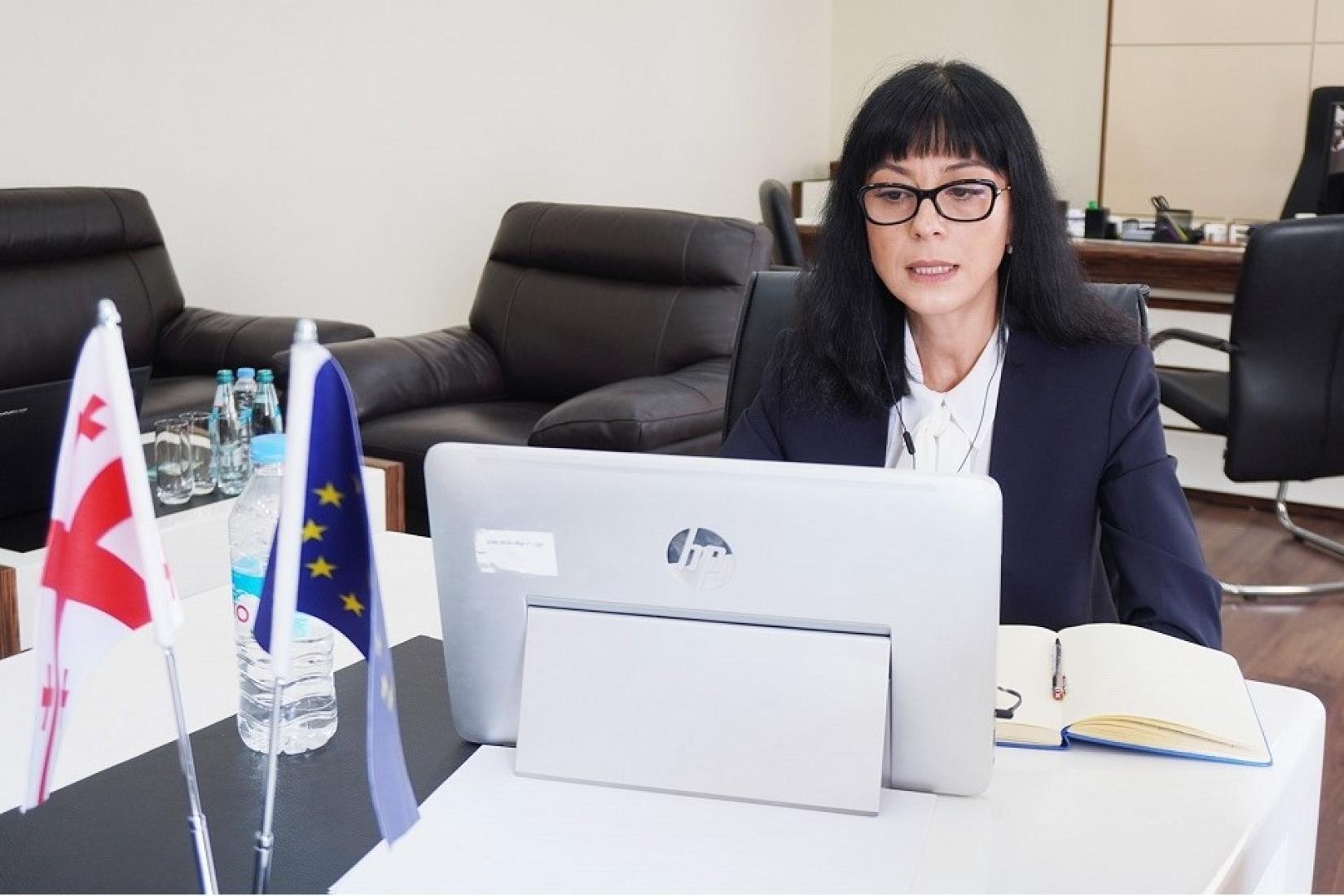Information sharing meetings on Incident Prevention and Response Mechanism continue in online format
30 October 2020
With the support of UN Women, the Office of the State Minister of Georgia for Reconciliation and Civic Equality (OSMRCE) in cooperation with the State Security Service of Georgia conducted another information sharing meeting on the Incident Prevention and Response Mechanism (IPRM) with the representatives of women’s CSOs, internally displaced and conflict affected women.

Tea Akhvlediani, the State Minister for Reconciliation and Civic Equality, opened the information sharing meeting on IPRM. Then Marek Szczygieł, Head of the EUMM in Georgia; Zviad Zviadadze, Head of Department of Autonomous Republic of Abkhazia, Former Autonomous District of South Ossetia and Civil Integration at the OSMRCE; and Irakli Antadze, Deputy Head of Information-Analytical Department of the State Security Service, provided participants with information regarding the results of past IPRM meetings.
Following the main speeches, the representatives of women’s CSOs, as well as internally displaced and local women living in the villages adjacent to the ABLs, discussed in detail the issues related to human security, including the humanitarian situation in Gali and Akhalgori regions due to closure of the checkpoints, challenges related to the pandemic and the specific needs of the locals, including conflict-affected women. In particular, topics such as the access to medicines, primary health care and medical services in general during the COVID-19 pandemic, necessity to ensure provision of tools for online learning (including access to Internet and improved mobile connection), as well as freedom of movement across the ABLs were highlighted. Urgency and importance of opening the checkpoints amid pandemic has been also emphasized to enable Gali residents receive pensions and state benefits, as well as access other essential services and goods. Further, Ekaterine Gamakharia, Head of the Tbilisi Office of the Cultural-Humanitarian Fund “Sukhumi”, underlined that there is a need to introduce alternative arrangements to the checkpoints suggesting to the IPRM representatives to organize temperature screenings and rapid testing at the checkpoints allowing locals to move easily on both directions.
“It is very important to hold similar meetings so that we, as locals and IDPs living along the dividing line, can inform the decision makers of our needs through direct dialogue,” remarked Tamar Kantaria, a resident of Ganmukhuri village. “During such meetings, I become more convinced that women have in-depth knowledge of the community needs, and a good example of this is the specific set of needs that we have laid out. I can boldly state that the issues raised at these meetings are always addressed and considered seriously.”
IPRM information sharing meetings are organized within the framework of the 2018-2020 National Action Plan of Georgia for Implementation of the UN Security Council Resolutions on Women, Peace and Security, aimed at integrating the needs and interests of internally displaced and conflict-affected women.




